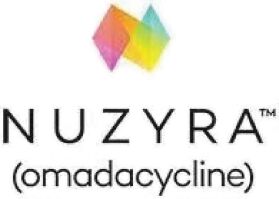CERTAIN ERISA CONSIDERATIONS
The following is a summary of certain considerations associated with the purchase and holding of the ADSs, or any interest therein, by (i) employee benefit plans subject to Title I of the Employee Retirement Income Security Act of 1974, as amended (“ERISA”), (ii) plans described in Section 4975 of the Code which are subject to Section 4975 of the Code (including individual retirement accounts (“IRAs”) and Keogh plans) or provisions under other U.S. or non-U.S. federal, state, local or other laws or regulations that are similar to such provisions of Title I of ERISA or Section 4975 of the Code (collectively, “Similar Laws”), and (iii) entities whose underlying assets are considered to include “plan assets” within the meaning of regulations issued by the U.S. Department of Labor (the “DOL”), set forth in 29 C.F.R. Section 2510.3-101, as modified by Section 3(42) of ERISA (the “DOL Plan Asset Regulations”) of any such plan, account or arrangement (each of the foregoing described in clauses (i), (ii) and (iii) referred to herein as a “Plan”).
General Fiduciary Matters
ERISA and the Code impose certain duties on persons who are fiduciaries of a Plan subject to Title I of ERISA or Section 4975 of the Code (each, a “Covered Plan”) and prohibit certain transactions involving the assets of a Covered Plan and its fiduciaries or other interested parties. Under ERISA and the Code, any person who exercises discretionary authority or control over the administration of a Covered Plan or the management or disposition of the assets of a Covered Plan, or who renders investment advice for a fee or other compensation to a Covered Plan, is generally considered to be a fiduciary of the Covered Plan.
When considering an investment in the ADSs, or any interest therein, using the assets of any Plan, a fiduciary should determine whether the investment is in accordance with the documents and instruments governing the Plan and the applicable provisions of ERISA, the Code and any Similar Laws relating to a fiduciary’s duties to the Plan including, without limitation, the prudence, diversification, delegation of control, conflicts of interest and prohibited transaction provisions of ERISA, the Code and any applicable Similar Laws. A fiduciary of a Plan should consider the Plan’s particular circumstances and all of the facts and circumstances of the investment, including, but not limited to, the matters discussed above under “Risk Factors,” in determining whether an investment in the ADSs satisfies these requirements.
Plan fiduciaries should consider the fact that none of the Company, the underwriters or any of the Company’s or underwriter’s affiliates (the “Transaction Parties”) is acting, or will act, as a fiduciary to any Plan with respect to the decision to purchase and/or hold the ADSs, or any interest therein, in connection with the initial offer and sale pursuant to this prospectus supplement. The Transaction Parties are not undertaking to provide impartial investment advice or advice based on any particular investment need, or to give advice in a fiduciary capacity, with respect to such decision to purchase the ADSs, or any interest therein.
Prohibited Transaction Issues
Section 406 of ERISA and Section 4975 of the Code prohibit Covered Plans from engaging in specified transactions involving plan assets with persons or entities who are “parties in interest,” within the meaning of Section 406 of ERISA, or “disqualified persons,” within the meaning of Section 4975 of the Code, unless an exemption is available. A party in interest or disqualified person who engages in a non-exempt prohibited transaction may be subject to excise taxes and other penalties and liabilities under ERISA and the Code. In addition, the fiduciary of a Covered Plan that engages in such a non-exempt prohibited transaction may be subject to penalties and liabilities under ERISA and/or the Code.
The acquisition and/or holding of the ADSs, or any interest therein, by a Covered Plan with respect to which a Transaction Party is considered a party in interest or a disqualified person may constitute or result in a direct or indirect prohibited transaction under Section 406 of ERISA and/or Section 4975 of the Code, unless the investment is acquired and is held in accordance with an applicable statutory, class or individual prohibited
S-34











